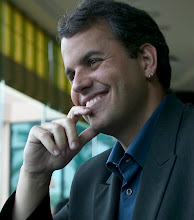Just finished Madeleine Albright's new book, "Memo to the President Elect," which I purchased after hearing her speak to the Commonwealth Club a couple of weeks ago. I've had the pleasure of meeting Secretary Albright twice at Aspen Institute events, and have been impressed. She isn't always on -- I once heard her give a speech where she did a bad job synopsizing "Madame Secretary" -- but when she's on her game she 's both a fabulously gifted speaker and insightful thinker. So, I found "Memo" to an interesting and troubling read.
Per the title, "Memo" runs with the idea of leaving a memo for the President elect that attempts to explain two broad topics: how the White House foreign policy apparatus operates and what foreign policy challenges await the next President. The chapters describing how power and responsibilities are balanced -- and fought over -- between the Secretary of State, Secretary of Defense, and National Security Adviser are a fascinating blend of history and Secretary Albright's personal experiences. It also provides a perfect opportunity to show off her sense of humor:
Al Haig, Reagan's first Secretary of State, drafted a twenty-one-page memo designating himself "vicar" of U.S. foreign policy. The memo, which was promptly leaked by the White House, soon disappeared -- as did Haig.In her speech to the Commonwealth Club, Albright reiterated her support for Hilary Clinton's candidacy. What I found interesting was that she wrapped part of her support in the argument that the next President will face so many critical challenges -- more on those in a moment -- that a President who can hit the ground running -- who knows where the levers and dials are to run the White House and West Wing -- will be an asset to recovering the United States' position in the world. After reading her book, I can see her point -- even if I don't believe that positive is enough to overcome some negative policy choices of Senator Clinton's. The history of the Byzantine and bizarre interactions of various Presidents' most senior advisers makes for sobering reading.
It is especially sobering given the very real threats of the next few decades. Albright lists the following:
- Terrorism
- Nuclear proliferation
- Doubts about the value of diplomacy
- Fear of globilzation
- Climate change
The moment has come to remind ourselves who "we" are and what Europeans and Americans can accomplish together. The quartet of Euro-Atlantic leaders -- Merkel, Brown, Sarkozy, and you -- can create a new foundation for global progress through the restoration of mutual trust and implementation of cooperative projects. For inspiration, I encourage you to cite the Berlin airlift -- because I fear that tale has been forgotten and because it, too, will have a sixtieth anniversary during your first year.Unfortunately, what worries me about Albright's book is how little attention it pays to technology, particularly to communications technology. The last decade has provided numerous examples of how to effectively leverage the Net and virtual worlds in:
- Education, training, and learning
- Cultural sharing and immersion
- Creation of markets and opportunities
- Roll playing of useful real-world skills
- Community formation and awareness
- Peer production and crowd sourcing
More importantly, nations -- leaders of nations -- must practice in order to build expertise wielding national power through modern tools because extremists of all types have demonstrated that they will. For the United States, with our image more tarnished than at any point in history, technology must be part of the strategy for responding to extremism, strengthening our alliances, and rebuilding our connections to the rest of the world.


No comments:
Post a Comment